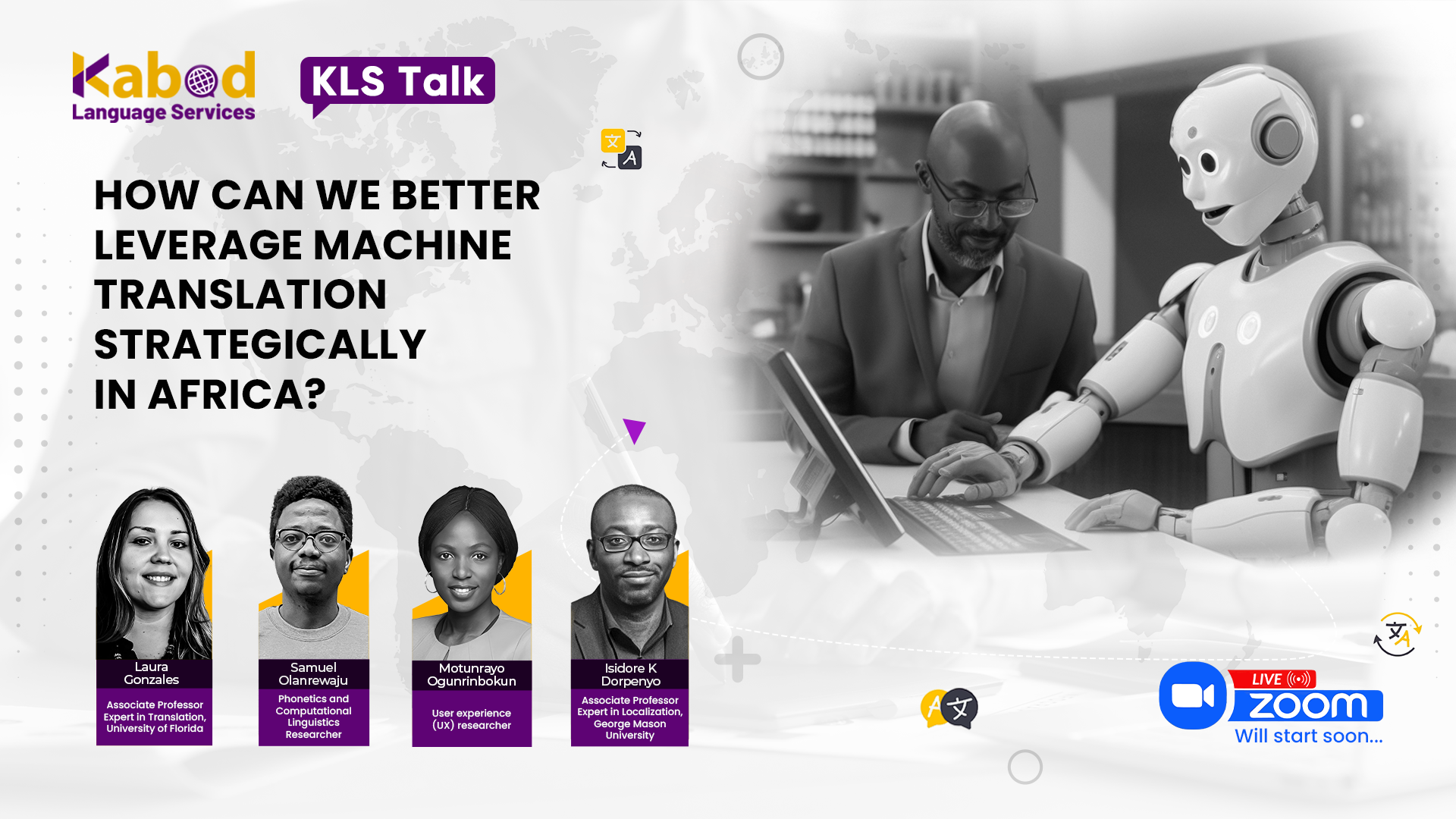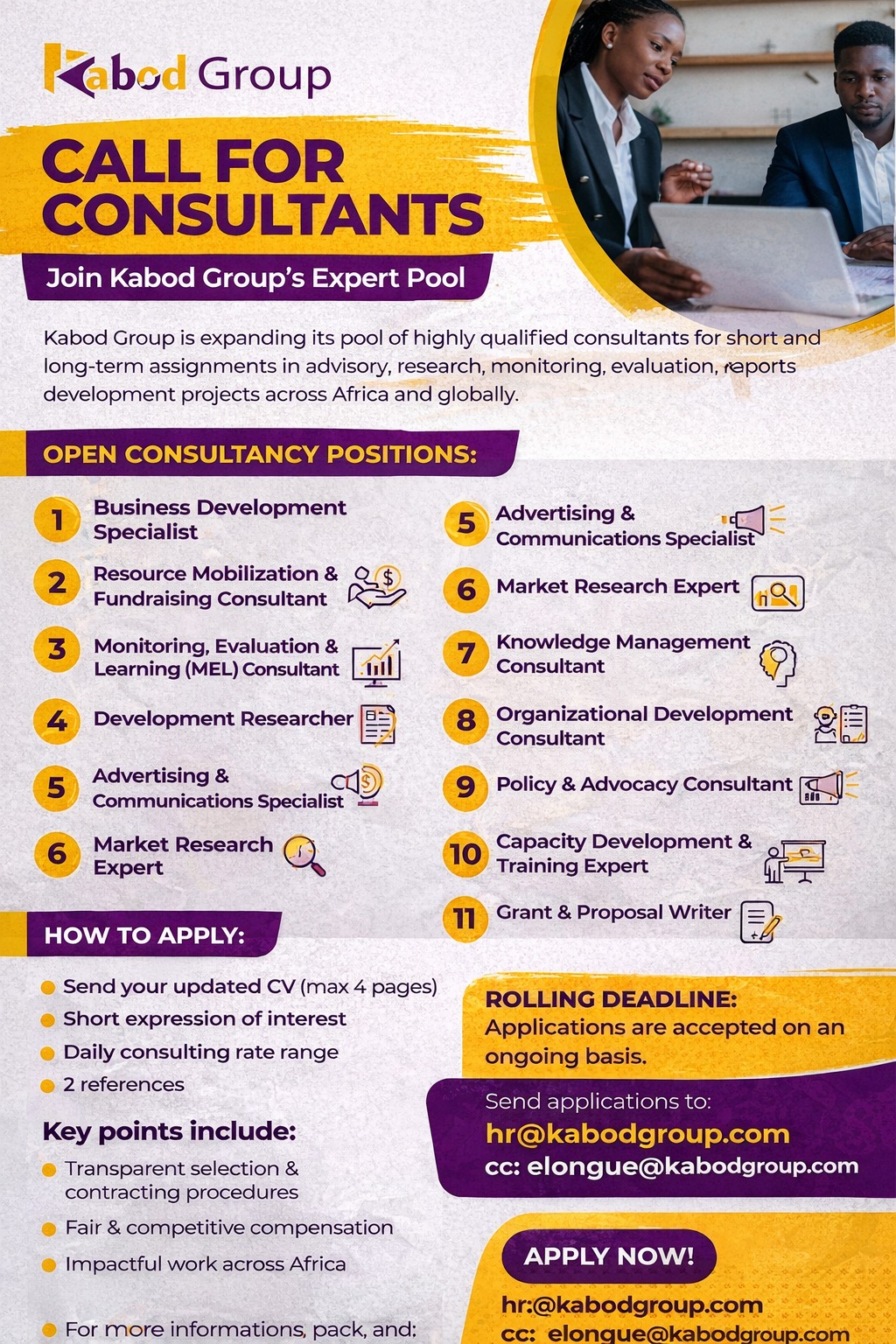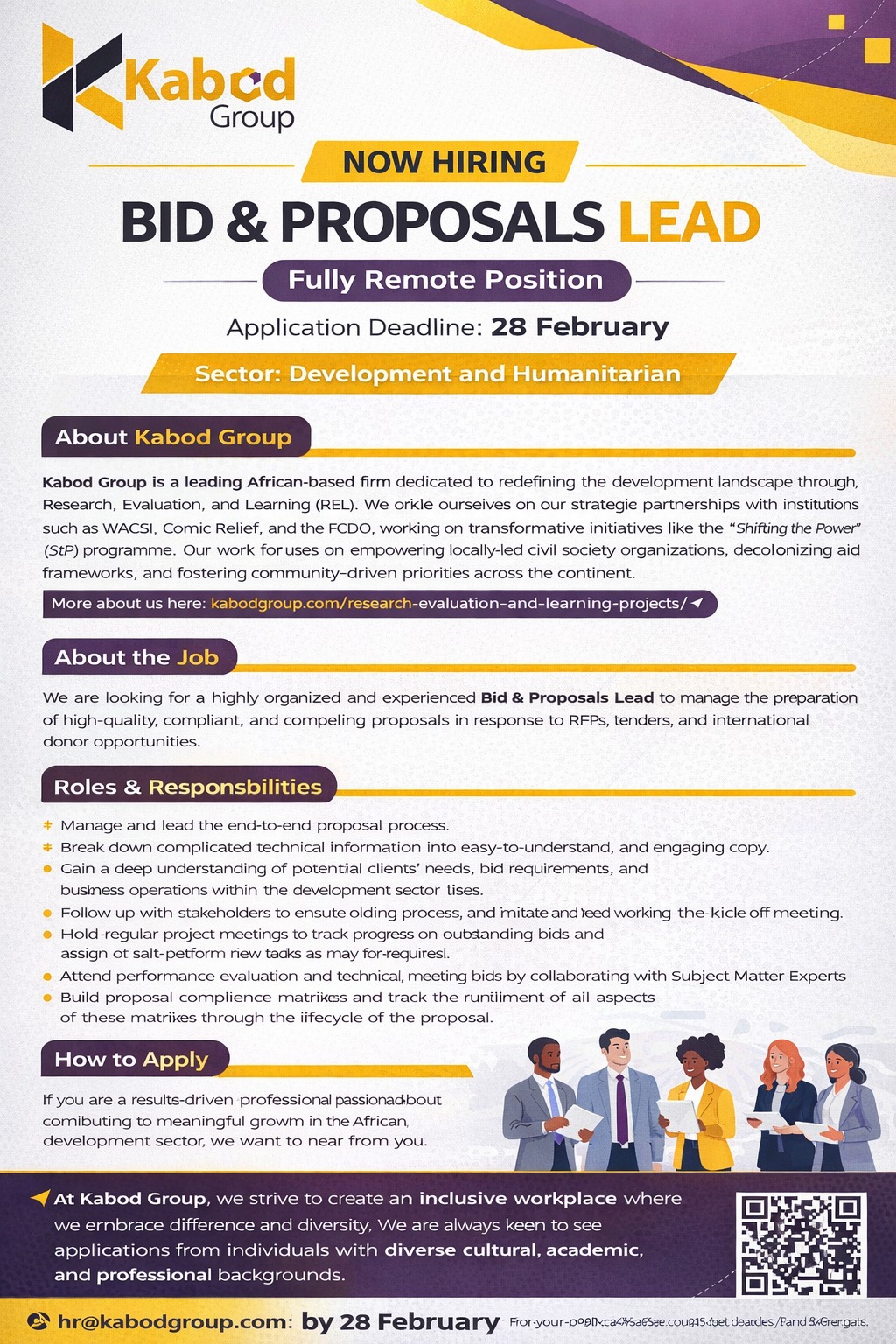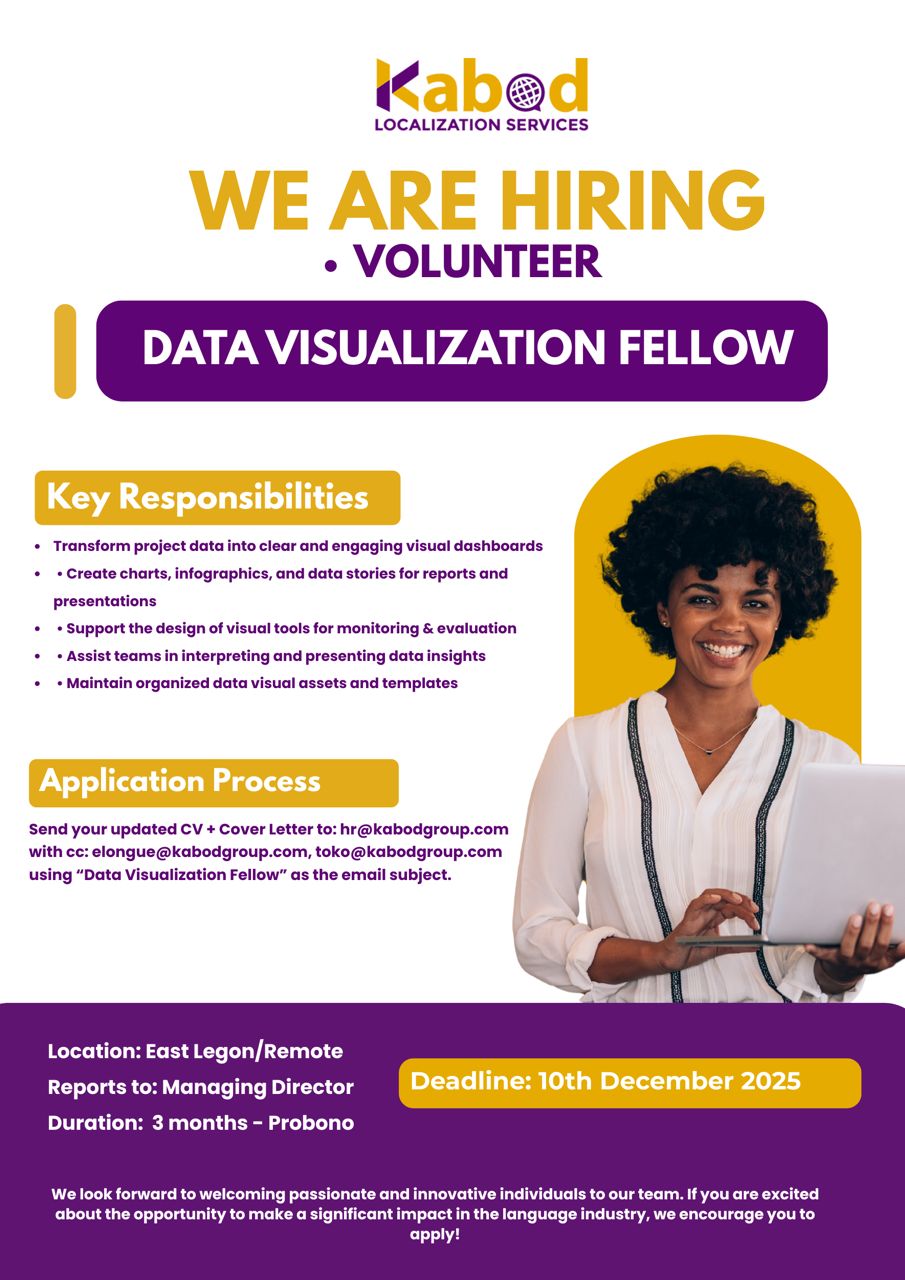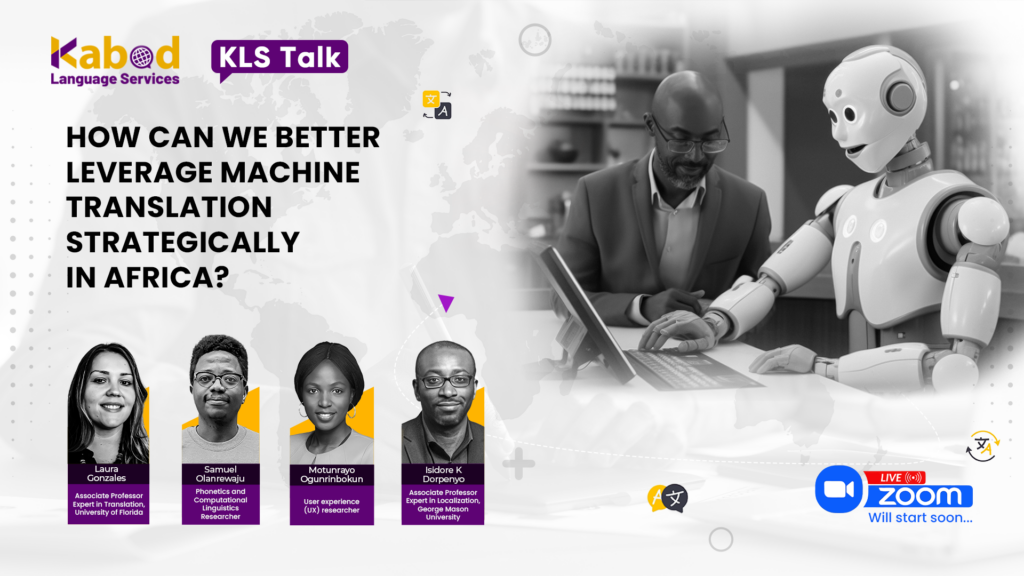
How Can We Better Leverage Machine Translation Strategically In Africa?
Introduction
Africa’s linguistic diversity, with over 2,000 languages spoken across the continent, presents unique challenges and opportunities for communication and business. Machine Translation (MT) offers a powerful solution for bridging these language gaps and fostering cross-cultural understanding. Recent advancements in artificial intelligence, neural networks, and access to extensive linguistic datasets have significantly enhanced MT technology. Although MT is not yet a perfect substitute for skilled human translation, it is an invaluable tool for boosting translation productivity and throughput when used strategically within a human translation workflow.
This report captures key insights and discussions from our webinar, where industry thought leaders and experts delve into best practices, innovative techniques, and real-world case studies to demonstrate how to effectively use MT to produce high-quality translations more efficiently and cost-effectively.

Event Flyer
The webinar on “How Can We Better Leverage Machine Translation Strategically in Africa?” was held on 11th July 2024.
It brought together academic experts, natural language processing (NLP) researchers, experienced translators, Language Service Providers, industry leaders in language technology, translators, interpreters, experts, and enthusiasts from across and beyond the continent to discuss the importance of balancing technological advancement with human expertise and cultural sensitivity.
The event was organized by Kabod Language Services, a leading language service provider specialising in providing quality language services in African languages as well as other Western languages. Our primary goal is to elevate African culture through our languages.
The distinguished panelists collectively brought a wealth of expertise and diverse perspectives to the event, contributing to insightful discussions and enriching the overall experience for attendees.
Panelists:
Isidore K. Dorpenyo: Associate Professor of Professional writing and rhetoric in the Department of English at George Mason University
Laura Gonzales: Associate Professor of Digital Writing and Cultural Rhetorics at the Department of English, University of Florida, Gainesville, FL
Motunrayo Ogunrinbokun: Associate Professor at the Department of English, University of Florida
Samuel Olanrewaju: Graduate Student, University of Toronto
Moderator:
Rebecca Aggrey: Language Officer at Kabod Group
HIGHLIGHTS
The webinar provided valuable insights from a panel of experts, offering a comprehensive view of the challenges and opportunities in the field as well as ethical considerations in applying MT to African languages particularly in the African context. Key insights included:
-
Structural Issues in Algorithms: Translation errors were highlighted as indicators of deeper structural issues in algorithmic technologies.
-
Human Dignity and Cultural Diversity: The need to prioritize human dignity and cultural diversity in technological design was emphasized.
-
Practical Solutions: Translators were encouraged to share stories and document “glitches” as practical ways to improve MT.
-
Community Involvement: A presentation on “No Language Left Behind” underscored the importance of community involvement in MT development.
-
Contextual Considerations: The importance of considering linguistic, cultural, and socio-economic contexts in MT was stressed.
-
Local Community Engagement: Engaging local communities in data collection and system development was emphasized.
-
Human Participation: Improving MT through active human participation was discussed.
-
Challenges for Low-Resourced Languages: Eye-opening insights were provided on the challenges faced by low-resourced languages in MT.
-
Dataset Quality: The efficiency of MT was explained to heavily depend on the quality of datasets.
-
Translationese Challenges: The panel discussed the challenges of translationese and the ontological differences between translated and original texts.
-
Diverse Worldviews in MT: The Sapir-Whorf Hypothesis was referenced to highlight the complexity of capturing diverse worldviews in MT.
-
User Experience Research: User experience research and participatory design involving community members were suggested as strategies for advancing MT in underrepresented languages.
The webinar emphasized the need for a holistic approach that combines technological innovation with cultural sensitivity and community involvement.
CALL TO ACTION
The event concluded with a compelling call to action for language professionals. By implementing the action points below, we can work towards more inclusive and effective MT solutions that respect and preserve the rich linguistic diversity of Africa.
-
Develop a framework for ethical MT development that prioritizes human dignity and cultural diversity.
-
Establish partnerships with local communities for data collection and system development, ensuring representation of low-resourced languages.
-
Implement user experience research and participatory design methodologies in MT projects, involving community members throughout the process.
-
Conduct further research on the impact of translationese and ontological differences in MT, particularly for African languages.
-
Organize workshops to train translators and language professionals on effectively working alongside MT systems.
-
Develop guidelines for balancing MT usage with human expertise in various translation scenarios.
-
Establish a task force to address the specific challenges of low-resourced African languages in MT development.
-
Create awareness programs about the limitations and potential of MT in African language contexts.
-
Initiate collaborations between technologists, linguists, and cultural experts to improve MT systems for African languages.
-
Stay informed with Afrolinguals Magazine: Our new Afrolinguals magazine is the premier industry news source for the African language services sector. Afrolinguals will offer in-depth articles, interviews, and updates on the latest trends, technologies, and best practices in our field. Stay tuned for its release and be part of the conversation shaping the future of language services in Africa.
Are you a speaker with innovative topics that can provide valuable insights and spark meaningful discussions within our community? Do you have a unique perspective or expertise you’d like to share? We encourage you to propose your ideas! If you’re interested, please contact us at languages@kabodgroup.com.
Kindly check out some previous editions of the KLS TALK here:
“How to grow your visibility and competitiveness in the language industry”
“Using Localization Guides to Increase Business Expansion and Profits into New and Existing Markets”
Follow and subscribe on our:
LinkedIn || Facebook || Instagram
Podcast of African Languages Technologies and tools (PALATT)
Network of African Language Translators and Teachers (ALATT)
Network of Marketplace of African Translators and Interpreters (MATI)
Send us an email: languages@kabodgroup.com

